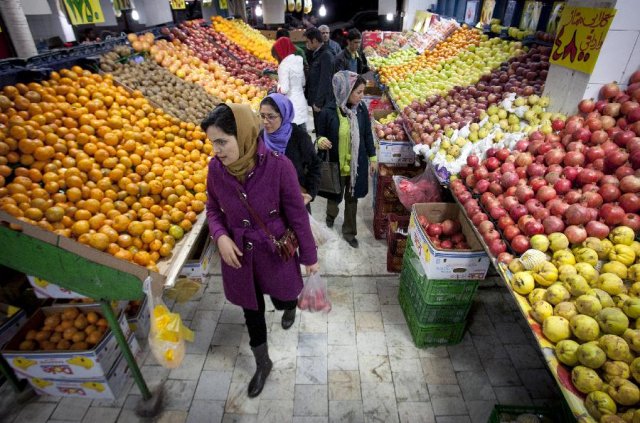
Foreign Minister Bob Carr said recently that the rising number of Iranian asylum seekers coming to Australia are “economic migrants”. The overall rate of asylum seekers has increased this year and Iranians have become the largest group of people arriving by boat, making up about one third of the total.
For many, leaving Iran is not a choice. Western-imposed sanctions target the population, including those with serious health needs. PressTV reported last year that 6 million Iranians suffering from special diseases such as multiple sclerosis, hemophilia and cancer could not access the medicine they need.
This number is 12 times more than the number of Iraqi children killed in the sanctions against their country.
Sanctions have also caused thousands of businesses to close down, causing millions of workers to lose their jobs in the past several months.
Al Jazeera said last month that in Iran: “The country’s official unemployment rate is around 12 percent, but some analysts think the actual figure may be double that. Youth unemployment could be as high as 40 percent and Iran has one of the world’s highest 'brain drain' rates.”
Those who have left Iran in search of opportunities elsewhere are victims of the sanctions, as are people that stay.
A Gallop opinion poll found that half of all Iranians cannot afford to buy food, the figure was 46% in 2011. The poll said 85% of Iranians believe the sanctions have affected their livelihoods.
Thirty-four percent believed their lives are getting worse, while 58% feel worried and 54% angry every day. Only 13% of Iranians blame their government for the economic problems they suffer. The sanctions have barely impacted support for Iran’s nuclear program, which is at 68%.
Fundamentally, this is a question of sovereignty and national independence. Iran has not bowed down to the wishes of the US, which has responded with collective punishment. But national independence means a lot to people and is not given up as easily as the West may think.
The US has banned all trade and investment with Iran since 1995. A few years after being named part of George W Bush’s axis of evil, sanctions were extended in response to Iran enriching uranium. The United Nations Security Council claimed Iran's nuclear program was for the development of nuclear weapons, despite no actual evidence that this was the case.
The European Union banned the import of oil from Iran from July 1 last year. All of these moves mean to cripple Iran’s economy to exert maximum political influence over the country.
The main source of income in Iran is oil. Unable to sell it, Iran's revenue has plummeted. In 2011, Iran exported 2.5 million barrels a day; in May this year it was 700,000.
With a collapse of income came an inability to afford basic goods such as food or medical supplies, all of which has led to huge inflation.
Australia announced its latest sanctions on Iran in January, including bans on transactions between Australian and Iranian banks, export of materials linked to Iran's nuclear program and importing natural gas from the country.
Although it was supposed to only affect the financial, trade, energy and transport sectors,
RMIT University banned Iranian students three months later, saying that it was forced to reject applications from Iranian citizens, because of federal government-imposed sanctions.
A drastic drop in the country’s currency value over the past 12 months, along with high inflation and unemployment, resulted from US-led sanctions, intensified by Israel, and supported by Australia, the EU and Canada.
Official data puts inflation at 34% this year. However, it is believed to be much higher than that, with some measurements putting it at 69.6% a month.
Carr said boat arrivals are “increasingly not people fleeing persecution” because they are from “majority religious and ethnic groups”. But there is no reliable evidence proving whether Iranians arriving by boat are “economic” refugees or otherwise.
Lesbian, gay, bisexual and transgender Iranians face serious threats and restrictions in the country. They cannot wait in Islamic countries like Turkey and Indonesia with their conservative culture similar to Iran for their claims to be processed by UN refugee agency.
Carr's and Prime Minister Kevin Rudd's announcements are a product of the political defeat in recent years of the refugee rights issue. Much of this is due to the fact that debate has focused on the wrong things. It's not just about refugees; large-scale migration to Australia should be supported.
The refusal to discuss sanctions in Iran as a reason for people to leave is an example of Western reluctance to accept its role in creating refugees and migration.
It may be true that people want to come to Australia because it offers a better standard of living, which they lost due to sanctions on Iran. But they also seek safety that has been lost due to the economic pressure and tension that has built up in the country.
Sanctions are a silent and non-declared war on Iran that have caused Iranians to leave their country. This makes “economic” reasons as genuine as social and political reasons to migrate to Australia.